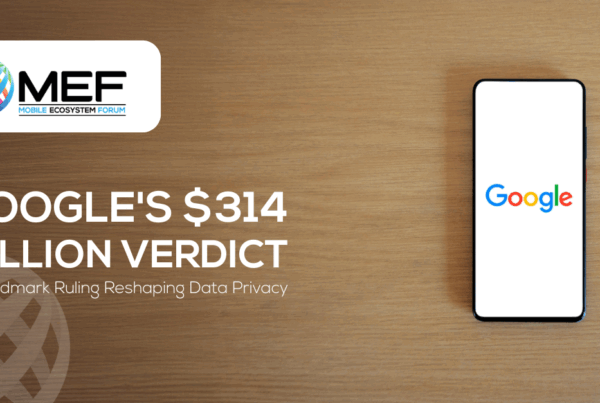Henrietta Shone, VP of marketing at XConnect shares an overview from their session at the recent MEF CONNECTS Omnichannel event in London, where they explored the possible future of RBM and how it might impact how enterprises interact with consumers. The whole show is available to watch on demand now.
At MEF Connects Omnichannel on 19th November, RCS and its A2P counterpart RBM (Rich Business Messaging) were a hot topic of discussion throughout the whole day.
RBM is set to become an essential tool for enterprises once it is adopted more widely, offering a secure, engaging, and interactive way to communicate with consumers. Here’s a breakdown of some of the key discussion points from the ‘Securing the Future of RBM’ panel.
Securing the Future = Securing the Enterprise
RBM is being positioned as a key player in enterprise value creation once the market penetration issue has been addressed. Whilst this is happening gradually, it is expected to speed up with more markets and networks enabling RBM, and consistent updates and efforts to improve service will then drive rapid growth.
Security was also a key topic. RBM will be a secure replacement for SMS, which can be easily targeted by fraudsters – but more on that later.
RBM/RCS Impact on Traffic: Complementing or Replacing SMS and WhatsApp?
A common question surrounding RCS and RBM is whether it will complement or replace existing communication channels like SMS and WhatsApp. Transitioning from SMS to RCS doesn’t require any action from customers, making it seamless for enterprises.
One of the significant advantages of RBM is that service providers can send messages via both SMS and RCS simultaneously. This ensures effective message delivery without requiring customers to upgrade their devices or apps. The key is to educate the market and prove the capabilities of RBM to clients and demonstrate its value, particularly for enterprises that are hesitant to adopt new systems.
 New Traffic Use Cases: Where Will RBM Shine First?
New Traffic Use Cases: Where Will RBM Shine First?
What are the best use cases for RBM to drive its adoption? The first wave of success will come from areas such as customer support, marketing messages, and notifications like OTP (one-time passwords). Authentication messages, for example, are the easiest to convert to RBM, offering immediate value and reassurance to consumers.
Other potential use cases include multimedia marketing, service notifications, and even customer satisfaction surveys. Delivering consistent customer satisfaction surveys across different channels has always been a challenge. RBM could bridge that gap by providing a consistent and engaging experience for users.
Verification and Branding: How Does it Work?
A key aspect of RBM adoption involves the verification process. Maintaining the right level of friction is essential—too much can deter businesses, while too little can compromise security.
Verification also plays a critical role in protecting the user experience, ensuring that only legitimate brands and businesses can use the RBM channel effectively.
Fraud and Security Concerns: Protecting the Channel
While RCS offers a more secure alternative to SMS, there are still concerns about fraud, especially in the P2P (peer-to-peer) channel. Fraudsters could potentially use SIM boxes to deliver fraudulent traffic, which is harder to trace and prevent. Google has a huge role to play in combating fraud through encryption and categorisation techniques.
It is also important to educate users about the signs of fraudulent RCS and RBM messages. By making users aware of trusted verification marks and logos, consumers can avoid falling victim to scams. Maintaining trust in the system is crucial to RCS’s long-term success in the market.
Looking Ahead: A Bright Future for RBM
RBM is on track to revolutionise business communication. While challenges remain in areas such as penetration, security, and international cooperation, the future looks promising. By focusing on seamless integration, improving security, and demonstrating its value to enterprises, RBM is poised to become a dominant force in the world of messaging, providing a richer and more secure alternative to SMS. With Apple now part of the ecosystem and growing enterprise adoption, the RBM train has definitely left the station.
MEF CONNECTS Omnichannel 2024
The MEF Omnichannel event is a comprehensive, one-day event into the world of Omnichannel communication and customer engagement.
From the evolution of messaging platforms to the impact of AI, attendees will gain valuable insights and practical knowledge to elevate their Omnichannel strategies and deliver seamless, personalized customer experiences across all touchpoints.
Watch on Demand now






